
This page summarizes cases raised with the United Kingdom by the Special Rapporteur between May 1, 2011, (when the Special Rapporteur took up his functions) and February 28, 2017 (the date of the last public release of communications). Communications are released to the public once per year. This page also contains observations on these communications and on responses received from the United Kingdom. Communications and observations are divided into sections based upon which observation report they originally appeared. Each communication is referenced as urgent appeal (UA), allegation letter (AL), joint urgent appeal (JUA) and joint allegation letter (JAL) - the hyperlinks lead to these documents. This is followed by the date the communication was issued, as well as the case number and the State reply (also hyperlinked if available). Summaries and communications are published only in the language of submission (in the case of the United Kingdom, English). First Report (May 1, 2011 to March 15, 2012) None Second Report (March 16, 2012 to February 28, 2013) None Third Report (March 1, 2013 to February 28, 2014) None Fourth Report (March 1, 2014 to February 28, 2015) Joint urgent appeal, 21/05/2014. Case no: GBR 2/2014. State reply: 10/07/2014. Alleged imminent risk of forced return from... Continue reading →
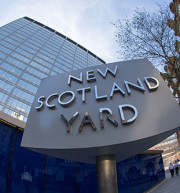
Special Rapporteur Maina Kiai undertook his second official visit to the United Kingdom of Great Britain and Northern Ireland from April 18-21, 2016, as a follow-up to his official visit to the United Kingdom in 2013. The visit was carried out pursuant to his mandate to assess the situation of freedoms of peaceful assembly and association in the country. At a press conference at the end of his visit on April 21, 2016, the Special Rapporteur noted that the UK takes its role as one of the global leaders in human rights seriously, but cautioned against a series of domestic measures that have resulted in the “closing of space for civil society." “I am concerned about a series of separate measures by the Government – some implemented and others proposed – which, put together, suggest that the Government has a negative view of civil society," he said in his concluding statement. “These moves have, in many instances, been subtle and gradual, but they are unmistakable and alarming.” He highlighted in particular the Government’s focus on countering “non-violent extremism” without a narrow and explicit definition of the term. He specifically referred to the Prevent strategy which focuses on individuals and groups that appear contrary to the “British Values” of democracy, pluralism and... Continue reading →
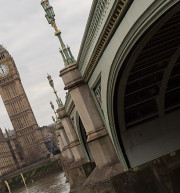
LONDON – The UN Special Rapporteur on the rights to freedom of peaceful assembly and of association, Maina Kiai, warned today against a series of measures resulting in the “closing of space for civil society in the UK”, at the end of a four-day visit to the country. The Special Rapporteur highlighted that the UK takes its role as one of the global leaders in human rights seriously and added that “many people around the world look to the UK as a model for democracy and human rights” and emphasised that “the UK truly should consider its civil society a national treasure.” He noted a number of his 2013 recommendations had been implemented and commended the Government for its continued willingness to constructively engage on human rights in general and on the rights to freedom of peaceful assembly and of association in particular. “I am concerned about a series of separate measures by the Government - some implemented and others proposed - which, put together, suggest that the Government has a negative view of civil society. These moves have, in many instances, been subtle and gradual, but they are unmistakable and alarming,” said the expert. The Government’s focus on countering “non-violent extremism” without a narrow and explicit definition was worrisome, Mr Kiai noted. He... Continue reading →
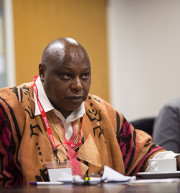
LONDON - I would like to once again thank the Government of the United Kingdom (UK) for inviting me to undertake this official follow-up visit from 18 to 21 April 2016, which is a follow up to my initial visit in January 2013. This is the first follow-up mission I have conducted during my tenure as Special Rapporteur, and I commend the Government for its continued willingness to constructively engage on human rights in general and on the rights to freedom of peaceful assembly and of association in particular. It is clear that the UK takes its role as one of the global leaders in human rights seriously. Many people around the world look to the UK as a model for democracy and human rights. The world notices when this country takes positive steps to strengthen its practice of human rights. But it notices even more when it moves in the opposite direction – restricting the space for democracy and human rights. Let me thank the Government for its excellent cooperation in organizing the mission, short as it was. A remarkable number of meetings were set up with members of the executive and legislative branches, and independent institutions, over the past four days. The input and assistance of these officials was extremely helpful. Given the brevity of the visit, I only looked at the situation in... Continue reading →
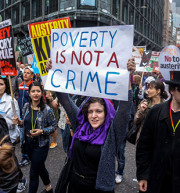
GENEVA – The United Nations Special Rapporteur on the rights to freedom of peaceful assembly and of association, Maina Kiai, will visit London from 18 to 21 April 2016 as a follow-up to his official visit to the United Kingdom in 2013. “This visit will give me an opportunity to follow-up on my recommendations and look at any good practices in relation to the exercise of the rights to freedom of peaceful assembly and of association developed by the authorities since my last visit, but also examine remaining challenges in this regard, and advise them how to overcome these,” Kiai said. “I look forward to a renewed constructive dialogue with all the stakeholders I am due to meet,” the independent human rights expert noted. The Special Rapporteur, who is visiting at the invitation of the UK Government, will stay in London where he is due to meet officials and members of Parliament, as well as representatives of independent institutions, including the national human rights commission, and of civil society. The Special Rapporteur will share his preliminary findings and recommendations at a press conference on Thursday 21 April at 1 pm at the Foreign Press Association, Award House, 7-11 St Matthew Street SW1P 2JT, London. Access to the press conference is strictly limited to journalists. A... Continue reading →
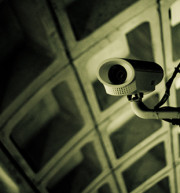
GENEVA – The United Kingdom’s draft Investigatory Powers bill could, if adopted in its present form, threaten the rights to freedoms of expression and association both inside and outside the country, a group of United Nations human rights experts warned. The draft legislation, which is currently being examined by the Joint Parliamentary Committee, aims to unify the various regulations governing how the UK surveillance agencies, police and other authorities can monitor suspects. Special Rapporteur on freedom of expression David Kaye, Special Rapporteur on freedom of peaceful assembly and of association Maina Kiai, and Special Rapporteur on human rights defenders Michel Forst expressed serious concerns about several provisions of the draft Bill. They highlighted that these contain excessively broad definitions and disproportionate procedures to authorise surveillance, including mass surveillance, and data retention without adequate independent oversight and transparency. “The lack of transparency could prevent individuals from ever knowing they are subject to such surveillance,” the experts noted in a six-page submission* to the Joint Parliamentary Committee. “This will ultimately stifle fundamental freedoms and exert a deterrent effect on the legitimate exercise of these rights and the... Continue reading →
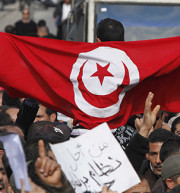
The Journal of Global Ethics has published an essay by Maina Kiai, in which he reflects on the first three years of his mandate, and the global state of assembly and association rights three years after protests exploded in Tunisia, sparking the Arab Spring. The essay, “Three years after Tunisia: thoughts and perspectives on the rights to freedom of assembly and association from United Nations Special Rapporteur Maina Kiai,” is available for free download to the first 50 people; subsequent access is by purchase only. Although Kiai’s mandate was created in late 2010 against the backdrop of shrinking space for civil society, a massive and growing global protest movement has grabbed most of the headlines since 2011. Kiai argues that the mandate has made a measurable impact – having helped raise awareness of repressive NGO laws, provided technical assistance to governments to strengthen assembly and association rights and developed soft law. But perhaps the most important work of the mandate, he argues, has been its contribution to a better understanding of just how important the rights to freedom of peaceful assembly and association are. “These rights satisfy people’s fundamental desire to take control of their own destinies,” Kiai writes. “They need to speak out, to work together... Continue reading →

Issue No. 2 of the Assembly and Association Briefing, the official newsletter of Maina Kiai, UN Special Rapporteur on the rights to freedom of peaceful assembly and of association. In this issue: • Kiai makes official visit to Rwanda; calls for increased space for peaceful dissent • Kiai makes unofficial visit to Cambodia, calls on gov’t to lift ban on public assemblies • Freeassembly.net website updated with new ‘country invitation status’ page • Community of Democracies & UNSR launch new project on civil society’s right to access funding • UK lobbying bill threatens to ‘stain’ British democracy • World briefing: freedom of assembly & association in the news • Assembly & association rights: By the numbers • Plus, our new Flickr page, which allows anyone to download and reuse official photos from the UNSR mandate under a Creative Commons attribution license For a link to the newsletter, click on the image at right or click... Continue reading →

An op-ed by Maina Kiai has been featured in the Guardian. The piece concerns the United Kingdom's proposed "Transparency in Lobbying, Non-Party Campaigning, and Trade Union Administration Bill" - legislation that would impose harsh restrictions on civil society advocacy during the year prior to an election. The most concerning part of the legislation would broaden the definition of what constitutes "election campaigning" to include any activity that affects the outcome of an election, even if unintentionally. The law would then regulate that activity as election campaigning and impose severe limits on spending. The concern, many charities say, is that their normal advocacy activities would be labeled "election campaigning" subject to campaign laws, virtually shutting them down during election periods. Although the legislation is being sold as a way to level the electoral playing field, Kiai argues that the bill actually does little more than shrink the space for citizens – particularly those engaged in civil society groups – to express their collective will. Meanwhile, restrictions on in-house corporate lobbyists would be weak, leaving civil society groups to bear the brunt of the law's impact. While it is understandable that the UK might wish to establish restrictions on the influence... Continue reading →

United Nations Special Rapporteur Maina Kiai urged today the British Government to review a number of legal and policing measures affecting the rights to freedom of peaceful assembly and of association in England and Wales, Northern Ireland and Scotland. “No matter how old a democracy, there is always space for continued improvements,” said the first independent expert charged by the UN Human Rights Council to monitor and promote the realization of the rights to freedom of peaceful assembly and of association worldwide, at the end of his official mission* to the United Kingdom. England and Wales (peaceful assembly) “I am deeply concerned with the use of embedded undercover police officers in groups that are non-violent and which exercise their democratic rights to protest and take peaceful direct action,” the Special Rapporteur noted, recalling the case of Mark Kennedy and other undercover officers. “The duration of this infiltration, and the resultant trauma and suspicion it has caused, are unacceptable in a democracy.” Mr. Kiai called for a judge-led public enquiry into this and other related cases, “with a view to giving voice to victims, especially women, who were deliberately deceived by their own government, and paving the way for reparations.” “These cases are as damaging... Continue reading →